To Think of a Way to Save Her (The Name of the Doctor)
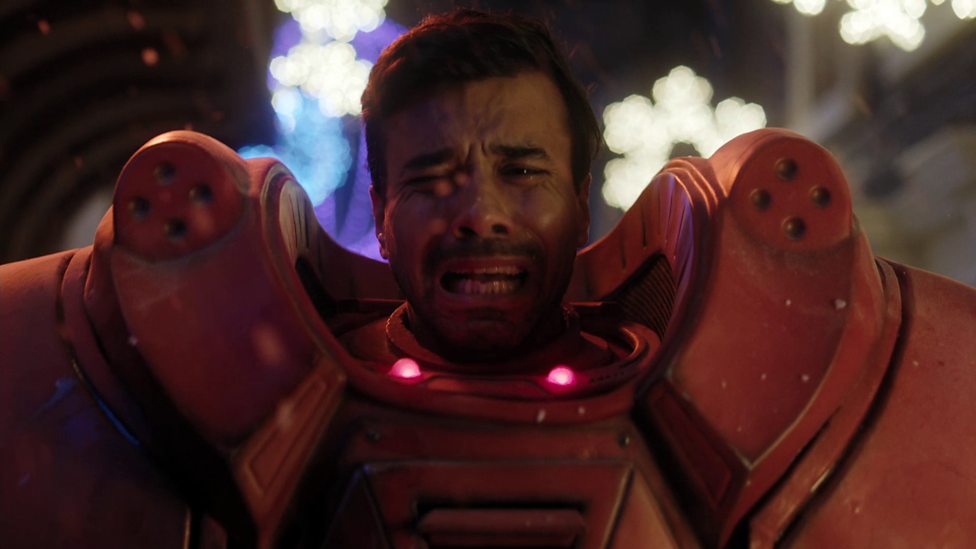 |
| What do you mean it’s not back until next Christmas? |
 |
| What do you mean it’s not back until next Christmas? |
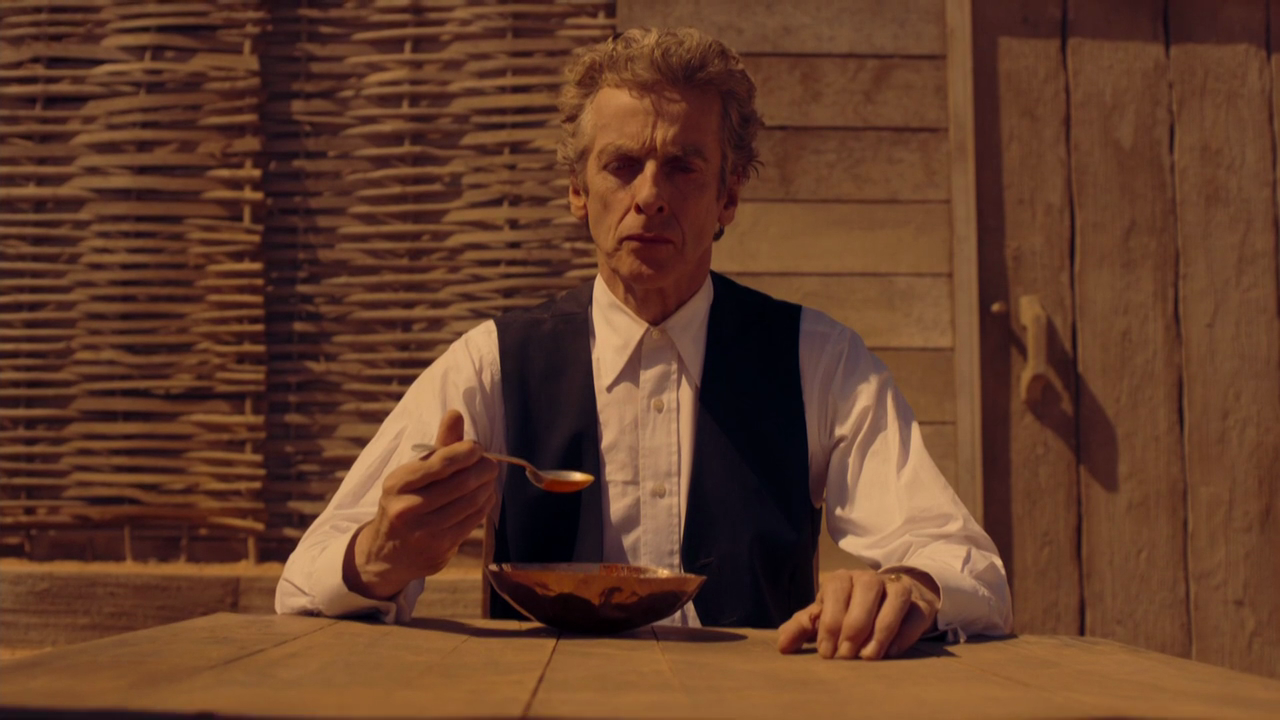 |
| For the second episode running, the Doctor struggles to eat soup. |
It’s December 5th, 2015. Justin Bieber still has three songs in the top ten, with “Love Yourself” at number one. Wstrn, the Weeknd, and Grace featuring G-Eazy also chart, with Adele still in there too. In news, the United Nations Climate Change Conference convenes in Paris, beginning the process of the Paris accords. A terrorist attack in San Bernandino, California kills fourteen, while the UK begins air strikes in Syria following a parliamentary vote to authorize them.
On television, meanwhile, Moffat’s masterpiece. This is, I imagine, a rather more controversial claim than last week. Sure, Hell Bent had a 2% higher AI rating than Heaven Sent, which means that it’s objectively as good as Kill the Moon and Aliens of London, but I don’t actually think that joke needs a punchline. The consensus here is clear: Heaven Sent is a brilliant and emotional triumph, while Hell Bent is a hot mess. To an extent I can’t even argue with this. Hell Bent is unequivocally messy, and it has Jenna Coleman in that blue-grey sweater. But many of my favorite Doctor Who stories are messy. Heck, possibly all of my favorite Doctor Who stories are messy.
Hell Bent, of course, is exceptionally so; a story that positively revels in the number of unrealized parallels and allusions it has going on, constantly seeming like it wants to foreshadow things it in reality has no intention of paying off. Beyond that, there is a willfully perverse sense of importance here. This is a story that brings to Moffat’s post-Day of the Doctor Gallifrey arc to a close with little more than a shrug, resurrects Rassilon for the sake of kicking him out of the story at the sixteen minute mark, radically redoes our entire idea of what the Matrix is to provide a neat horror setting for ten minutes in the middle, and concludes the entire hybrid plot with a shrug and a hand-wave. For people who don’t like it when Moffat does things like this—and obviously there are a fair number of them—this borders on trolling. Certainly when Moffat’s structural tics are being deployed at this scale and on the back of such an imperiously confident run as the last eighteen episodes it’s easier to read this as a decisive pair of middle fingers to the haters than as mere incompetence.
For those of us who have bought into Moffat’s idiosyncrasies, however, this is something altogether different. Moffat doesn’t decline to pay something off out of laziness; he does it to make a point about whatever it is he pays off in its stead. And he’s consistent in how that bait and switch works: he promises a grandiose epic of manpain and then offers an intensely human story, typically but not always about women. Within this framework, the question of what the story of Clara’s death would end up focusing on was a non-question: it would focus on Clara.…
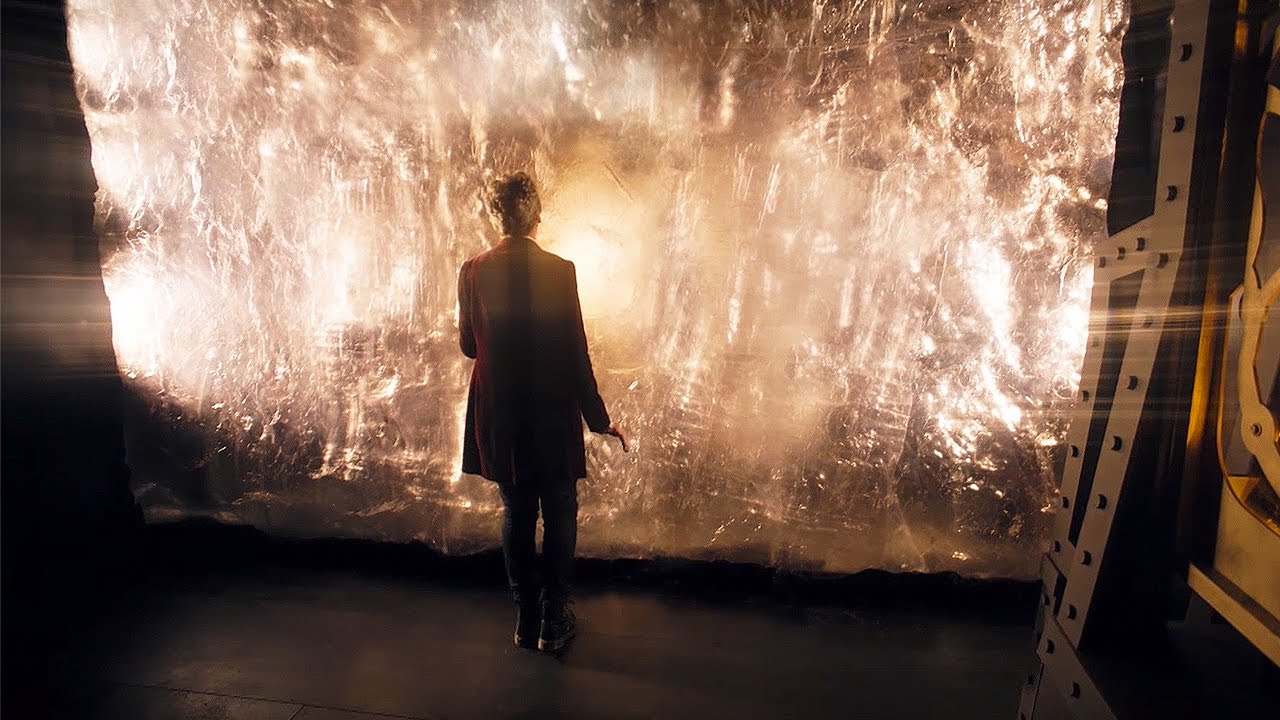 |
| I got a rock. |
It’s November 28th, 2015. Justin Bieber continues his assault on the top ten, holding number one with “Sorry” while “Love Yourself” and “What Do You Mean” are also in the top ten. One Direction and Nathan Sykes also chart. In news, a gunman attacks a Planned Parenthood clinic in Colorado Springs and Turkey shoots down a Russian jet on the Syrian border, sparking a bit of an international incident.
On television, meanwhile, Moffat’s masterpiece. Which means that we should start by talking about Blink, the story to which any supposed Moffat masterpiece must be compared. It is not that Blink is straightforwardly and unquestionably the best Moffat story; picking The Pandorica Opens/The Big Bang or Day of the Doctor is an eminently respectable choice. But a masterpiece is different from a mere best, implying not just raw quality but a sort of technical proficiency that shows off the writer’s skill. This is why Blink serves as the type specimen for Moffat—a story long on formal constraint and ostentatiously clever structure that plays elaborate games with time and causality. Its ostentatious grandeur hangs over the whole Moffat era, a high watermark whose reputation seems to foreclose the possibility of ever topping it.
And yet Heaven Sent brazenly tries to. This is clear from the basic technical premise: a one-hander, in which Peter Capaldi is left to carry an entire fifty-five minute episode by himself, with no co-stars save for a silent monster, a cameo by Jenna Coleman, and a young boy with no dialogue in the cliffhanger. Where Blink was a doctor-lite episode, Heaven Sent is its radical opposite, an episode that is not so much Doctor-heavy as it is Doctor-exclusive. There’s an almost petulant quality to the anxiety over self-plagiarism, a sense that in going to the opposite extreme Moffat has only confirmed the validity of the comparison. But what is perhaps more telling is the nature of the technical challenge laid out. Blink existed because of a scheduling challenge, minimizing the Doctor’s appearances so it could be double blocked with Human Nature/Family of Blood, Heaven Sent is a one-hander for no reason other than to be impressive. It’s not a clever solution to a production problem; it’s clever because the show wants to be appreciated for how clever it is.
Is this arrogant? Narcissistic? Self-congratulatory? Yes, of course it is. There is no point in pretending that Heaven Sent is not an exercise in vanity that seeks to put a final and decisive triumph on Moffat’s record before he departs. That it unequivocally succeeds does not change the task in question. But we’ve kind of buried the main point in all of that. Heaven Sent is a story that only makes sense in the context of Moffat’s presumptive departure. Its presence in the season is a crystal clear sign that he’s reaching the end of what he has to say about Doctor Who. This can hardly be called a surprise. He’s already done a season more than Davies, and somewhere in the midst of The Zygon Inversion he surpassed Robert Holmes for total minutes of Doctor Who written over the course of his career.…
All right. Since we finally have an airdate announced, it’s probably time to formalize Eruditorum Press’s plans for Series 11. As usual, our hope is to do reviews and podcasts of all ten episodes and the Christmas special. And I mean, we really hope to do that. I’m dying to weigh in week by week on a new era of Doctor Who. It sounds amazing. But, of course, bills must be paid, and so there are some Patreon goals we have to meet first. At the time of writing, the Patreon is at $371 a week, just $4 shy of the $375 threshold at which I’ll review every episode. So one $5 pledge is all it’ll take to make sure that happens. And I’ve just made an AMA post for $5 patrons, so it’s the perfect time to do that.
Podcasts are a little more ambitious, at $400. We might not make that; it’d be the highest the Patreon has ever gone, certainly. But I am an optimistic devil, and I think we can probably just squeak through at that level. So. If you want to hear me round up ten awesome guests and talk about Doctor Who with them, get thee to the Patreon.
If reviews happen, I’m going to pause the Capaldi Eruditorum entries for ten weeks. The post that will go up on October 1st is a perfect point to pause for a bit, and I think doing so is the right decision for my mental health and productivity. I’ve been on a grueling production schedule and literally everything is behind, and while I’d love to double run reviews and Eruditorum entries, the reality is that I’d be wiser to let myself do reviews in the first couple days of the week and then have the remainder of the week to work on getting books reissued, revise Eruditorum v7, and make there ever be anohter Last War in Albion post ever. So if we hit reviews, I’ll write them as fast as I can, send them out to Patrons, and then put them on the site either Tuesday or Wednesday depending on when I’m getting the out to Patrrons because I want them to still get a nice window of exclusivity that makes ’em feel all special and shit.
Finally, I want to just do that obnoxious thing where I get all personal and sentimental. So first of all, thank you to all my Patrons. I love that I can do this job. It’s one of the most amazing experiences of my life. That said, the summer has been really rough financially. It’s not some sort of dire “The GoFundMe will start imminently” situation, but it’s rough ehough that theres a good chance I’m going to need to use the v8 Kickstarter to fund the fulfillment of the v7 one. This isn’t because of a drying up in Patrons or anything—the Patreon is doing the best it ever has. It’s just a combination of some bad luck and the fact that completly replacing your entire wardrobe from scratch, picking up a bunch of new medical appointments, getting shot in the chin with lasers, and starting to smear a bunch of weird colorful rocks on your face every morning costs money.…
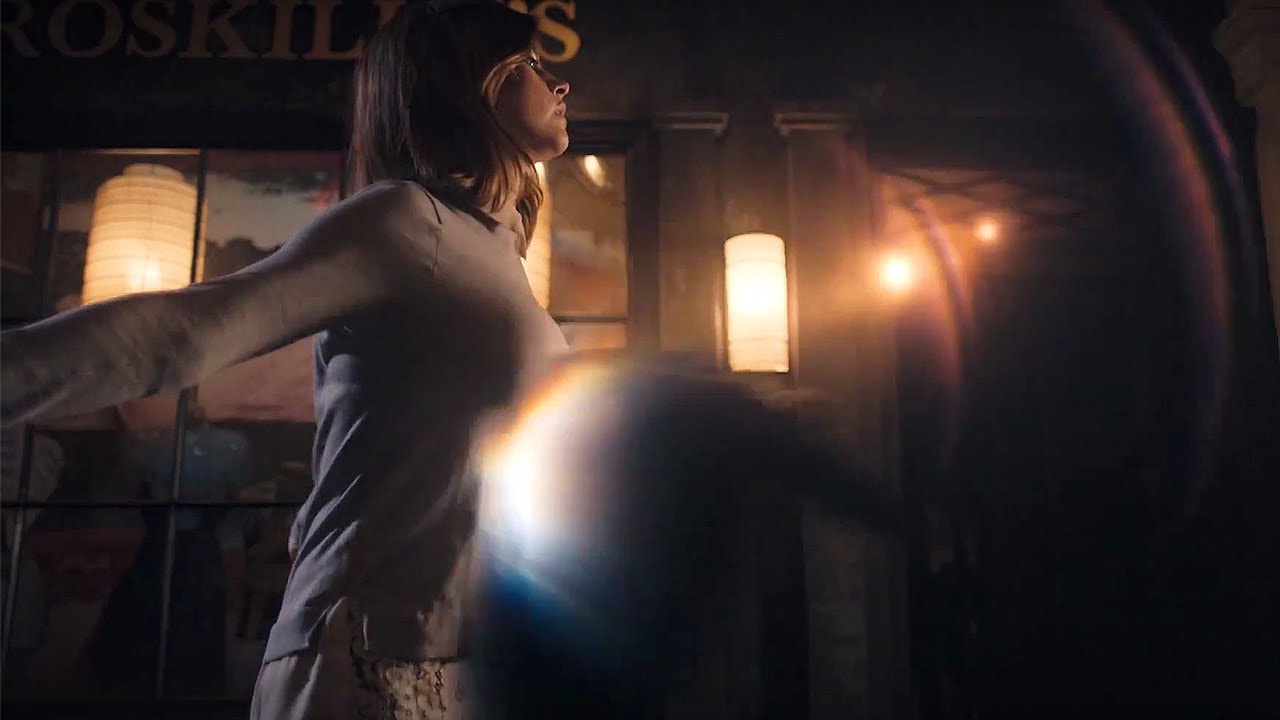 |
|
List of ways companions have died on Doctor Who: asphyxiated in space, instantaneously aged to death by the Time Destroyer, spaceship crashed into Earth, a bird flew into her tits |
It’s November 21st, 2015. Justin Bieber’s “Sorry” has unseated “Hello” at number one, with both “Love Yourself” and “What Do You Mean” also in the charts. Jess Glynne and One Direction are also newly in the top ten. In news, Storm Barney strikes Britain, knocking out thousands of people’s power, and not a ton else happens unless you find Bobby Jindal withdrawing from the 2016 presidential election interesting, which you probably shouldn’t.
While on television, the Doctor Who debut of Sarah Dollard. “What’s the most impressive debut of a Doctor Who writer” is a fairly entertaining parlor game. Harness has obvious cred, as does Mathieson. There’s a host of obvious one hit wonders to consider: Peter Ling, Andrew Smith, or Barbara Clegg. There are big classics like Terry Nation, Malcolm Hulke, or even Steven Moffat himself. Or you could go with an impishly perverse choice like Stephen Wyatt. But for the most part the debate’s plausible margin of error evaporates here. Face the Raven may not be the best first story anyone has ever written for Doctor Who, but it is the one in which the fact that it’s a debut is most impressive.
The biggest and most obvious thing to point out is the writing credit. “Sarah Dollard.” Not “Sarah Dollard and Steven Moffat.” In a period where Moffat is willing to take credit for even small contributions such as his work on The Caretaker, his absence here speaks volumes. Sure, we could be cynial and suggest that Moffat was simply aware of the bad optics of publicly rewriting what is only his second female writer, but if you look at the scene you’d most expect Moffat to need to intervene on, the pre-death scene, it doesn’t sound like him. He’d write it differently; there would be eminently quotable lines aching with cleverness. It’d be brilliant, of course, but it wouldn’t be this particular flavor of brilliance. This isn’t Moffat; this is a new voice being shoved out onto the biggest stage imaginable and giving it her absolute all.
What’s remarkable in all of this is the amount of confidence and trust placed in Dollard, who saw her “trap streets are real” pitch get both Me and the death of Clara added to it. In another era, this sort of layering of added requirements on a relatively green writer got you Time-Flight at best and The Twin Dilemma at worst. This is both an overstuffed banquet and an absolute lynchpin story that you’d expect to go to either a trusted veteran or someone like Phil Ford who was clearly just there to save Moffat the time of a first draft. Instead it goes to the rookie who, it must be stressed, hits it out of the park.
Let’s start with the big ticket item: the death of Clara.…
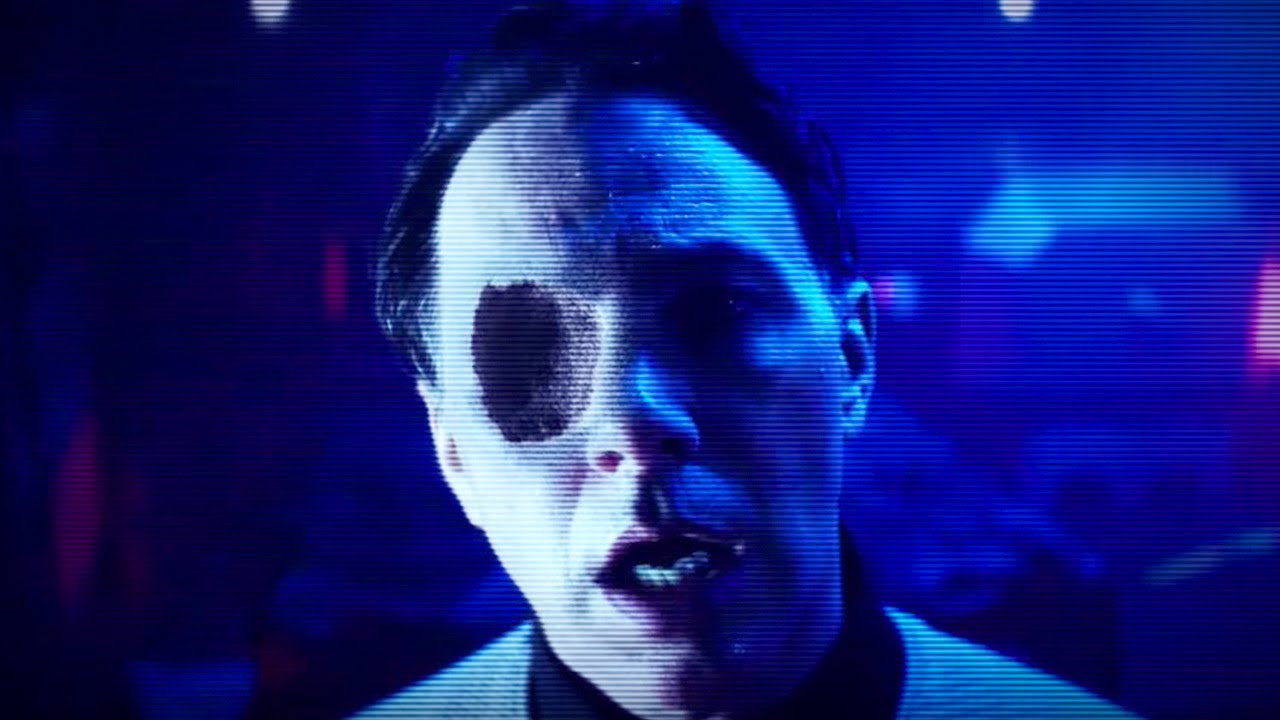 |
| Jeez man most people just use a sleep blindfold |
It’s November 14th, 2015. Adele is at number one with “Hello.” Fleur East, Wstrn, and Justin Bieber also chart, the latter with both “Sorry” and “What Do You Mean.” In news, a series of terrorist attacks take place in Paris including a mass shooting at the Bataclan theatre during an Eagles of Death Metal concert and a series of suicide bombings around the Stade de France during a match between France and Germany. The first storm named by the Met Office, the extratropical cyclone Abigail, hits Scotland, while a series of protests at the University of Missouri lead to the resignation of the president of the system.
On television, meanwhile, a distinctly unusual episode of Doctor Who. Sleep No More is not, by general acclamation, a classic. Even those inclined towards sympathy for Gatiss tend to focus their redemptive efforts elsewhere. And it’s easy enough to see why this might be. It’s a decidedly lumpy story with idiosyncratic pacing that never quite sells its stakes or offers a coherent account of its concept. Character remains something of an afterthought for Gatiss, which is frustrating for Clara’s last straightforward adventure in a season that broadly underutilized her, and doubly so given that Gatiss has written flat-out great scenes for her in the past. But several of those things are just snooty ways of rephrasing “it was written by Mark Gatiss,” and the rest are products of the fact that it’s doing several other interesting things instead.
So having gently and lovingly placed The Zygon Invasion/The Zygon Inversion in the path of an oncoming bus, let’s do that other thing we periodically do and dust off an unpopular story to explain why it’s got more going on than you might think. Because while defending Sleep No More as an overlooked classic in a season with The Magician’s Apprentice/The Witch’s Familiar, The Girl Who Died, The Zygon Invasion/The Zygon Inversion, Face the Raven, Heaven Sent, and Hell Bent is probably a bit of a reach, slamming it as a bust is, or at least should be, just as ridiculous. This is a story that’s long on ambition, achieves no small part of it, and comes off as a lot more in step with its times than it might have appeared in late 2015.
Let’s start with what this story is doing. Most obviously, it’s a found footage horror story. This is not ambitious in and of itself—it’s just another genre swipe of the sort that Doctor Who can at baseline be expected to do. But what’s interesting is that it’s a genre largely defined by technical concerns as opposed to content-based ones. There are a few constraints on what happens in a found footage horror story; it’s assumed that things will end with some destructive event that leaves the footage as the only remaining record of whatever happened, but past that there aren’t a ton of tropes that define the genre.…
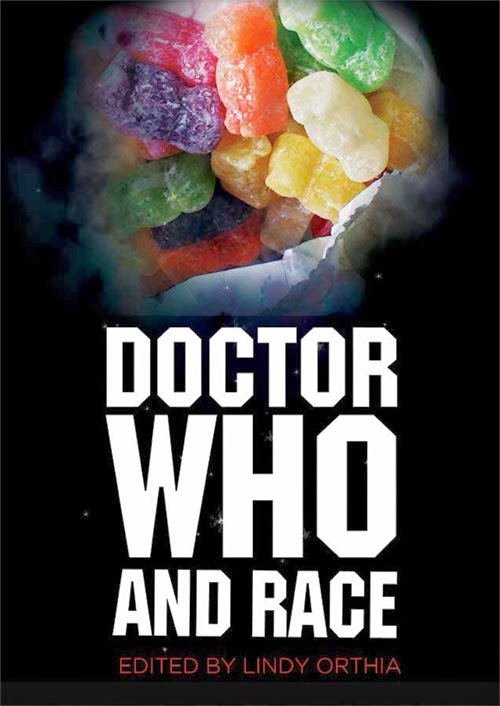 In light of recent controversies in and around Doctor Who Magazine about The Talons of Weng-Chiang, it is our pleasure to reprint Kate Orman’s essay from Lindy Orthia’s collection Doctor Who and Race, which is, for my money, the best and most comprehensive take on the story’s racism out there, and something that absolutely needs to be seen by a wider audience. Massive thanks to both Kate and Lindy for agreeing to our republishing it.
In light of recent controversies in and around Doctor Who Magazine about The Talons of Weng-Chiang, it is our pleasure to reprint Kate Orman’s essay from Lindy Orthia’s collection Doctor Who and Race, which is, for my money, the best and most comprehensive take on the story’s racism out there, and something that absolutely needs to be seen by a wider audience. Massive thanks to both Kate and Lindy for agreeing to our republishing it.
“Maybe we wouldn’t get away with it these days.”
– Philip Hinchcliffe[1]
Introduction
As a Chinese doctor who fan, I just want to say Talons of Weng Chiang was so horrible for me that I didn’t manage to finish watching it… Why did I even try to watch it, knowing there’re evil Chinese stereotypes? I should have known better. I love my show and it’s painful to watch.[2]
The Talons of Weng-Chiang (1977), a long-standing favourite, has only two real flaws in the eyes of Doctor Who fans: the casting of white actor John Bennett as Chinese villain Li H’Sen Chang, and an unconvincing giant rat. While the rat can be smiled at, the story’s use of ‘yellowface’ has to be explained away. Paradoxically, the intense moral opprobrium attached to calling something ‘racist’ helps to obscure the presence of racism. If racism is anathema, then when a story we cherish contains racially charged elements, we must show that it’s not really racist – and neither are we for loving it.
The rat and the yellowface are both forgiven by fans on the same grounds: the exigencies of seventies television production. Neither technology nor attitudes were as advanced then as they are now, and maybe Asian actors were rarer in those days.
I think the fan discussion around Bennett’s casting misleads us. Even if, say, Burt Kwouk, Anthony Chinn, Robert Lee, Kristopher Kum, or Cecil Cheng[3] had been cast as Chang, it still wouldn’t have fixed Talons. The yellowface is only the most conspicuous component of a collection of contemptuous clichés in which Talons is involved – up to its epicanthic eyebrows!
The Devil Doctor
Jago: You mean to say the Celestial Chang was involved in all these Machiavellian machinations?
The Doctor: Yes, up to his epicanthic eyebrows.
Hostile racial caricatures don’t just appear from thin air: they’re created for a reason. Politicians and the press may be trying to justify a war or scapegoat immigrants. However, the early twentieth century English novelist Arthur Sarsfield Ward, better known as Sax Rohmer, had a different reason: to make money. As his biographers note, “Conditions for launching a Chinese villain on the market were ideal […] The Boxer Rebellion had started off rumours of a Yellow Peril which had not yet died down. Recent events in Limehouse had again drawn public attention eastwards.”[4]
Drawing on the anti-Chinese stereotypes which had long been promoted by British newspapers, boys’ magazines[5], and politicians[6], Ward conjured up not the first but by far the most influential[7] Oriental criminal mastermind bent on world domination: Fu Manchu.…
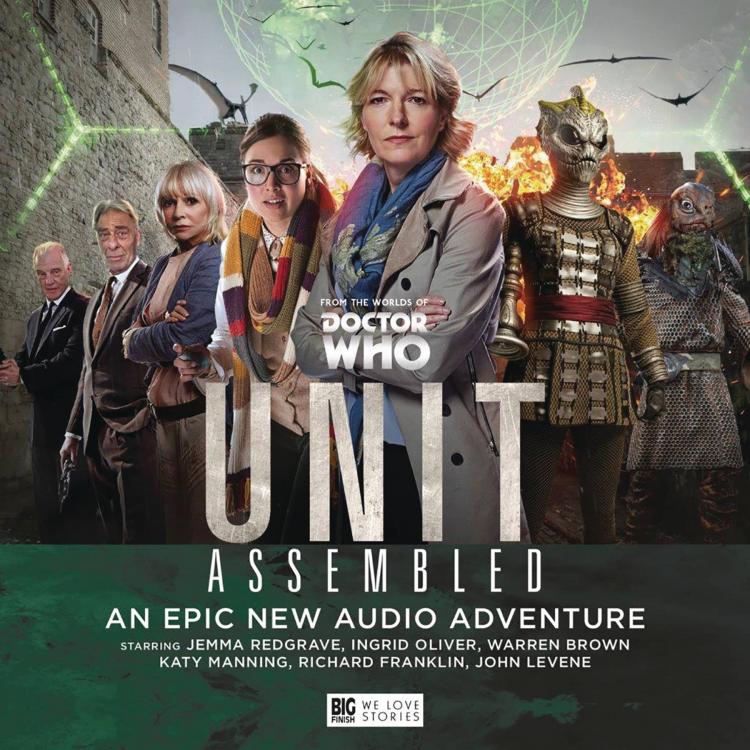 It’s been nearly five years since I last wrote about Big Finish on this site. Much of this gap is due to the fact that it’s only fairly recently that Big Finish’s license was expanded to cover the new series, so there’s been pretty slim pickings post-McGann. But in 2015 Big Finish released their first Torchwood and UNIT audios, and since then new series-adjacent material has been a mainstay of their increasingly bloated line. To date there’s nothing that directly ties into the Capaldi era, but as all of Osgood’s stories and all but one of Kate Stewart’s have Capaldi in them, this seemed the line to check back in on the company with.
It’s been nearly five years since I last wrote about Big Finish on this site. Much of this gap is due to the fact that it’s only fairly recently that Big Finish’s license was expanded to cover the new series, so there’s been pretty slim pickings post-McGann. But in 2015 Big Finish released their first Torchwood and UNIT audios, and since then new series-adjacent material has been a mainstay of their increasingly bloated line. To date there’s nothing that directly ties into the Capaldi era, but as all of Osgood’s stories and all but one of Kate Stewart’s have Capaldi in them, this seemed the line to check back in on the company with.
It’s no secret to anyone who reads my social media that I’m hostile to Big Finish of late. But I haven’t really talked about that in long form. So instead of beating around the bush and coming to a conclusion that Big Finish is in much the same boat as the novel line in terms of its complete failure to do anything of worth with its license, let’s just start up front with the litany of problems this set has. Its hook is compelling enough—the surviving Pertwee-era actors (save for Fernanda Marlowe) team up with modern day UNIT to fight the Silurians. There are some problems baked into this, like that Benton and Yates are not exactly characters who bring a ton of, well, character to the table, with Benton’s main trait being an earnest masculinity and Yates’s being that he’s played by a rapist. But it’s a perfectly charming premise for what it is, and clearly the sort of thing Big Finish exists to do.
It’s after the hook that the problems start mounting up. The four episodes of this are written by Matt Fitton and Guy Adams, who currently average about a story a month for Big Finish. Nothing about that is a good idea. Big Finish released, and I am astonished by this figure, a hundred and twenty-five separate Doctor Who audios that were an hour or longer in 2017. Fully 28% of these were by three authors, two of which were Fitton and Adams. Both halves of those statements are absurd. The creative case for making a hundred and twenty-three separate Doctor Who audios in a single year is non-existent. But to do so while so heavily centralizing the work among a small number of writers is simply appalling. Big Finish cycles in more new and first-time writers than their reputation would suggest, but the fact that they are engaging in such grotesque overproduction while continuing to maintain a “no unsolicited submissions” policy and leaning so hard on the same writers (another 39% are accounted for by just nine additional writers, meaning twelve writers are collectively responsible for two-thirds of their output) is the sort of thing that makes it very hard not to tip into outright Levineism and just call “evil.” Really, the only reason not to is that it’s better to save it for the fact that only ten of those hundred and twenty-five are by women, a majority of which are in the Torchwood line.…
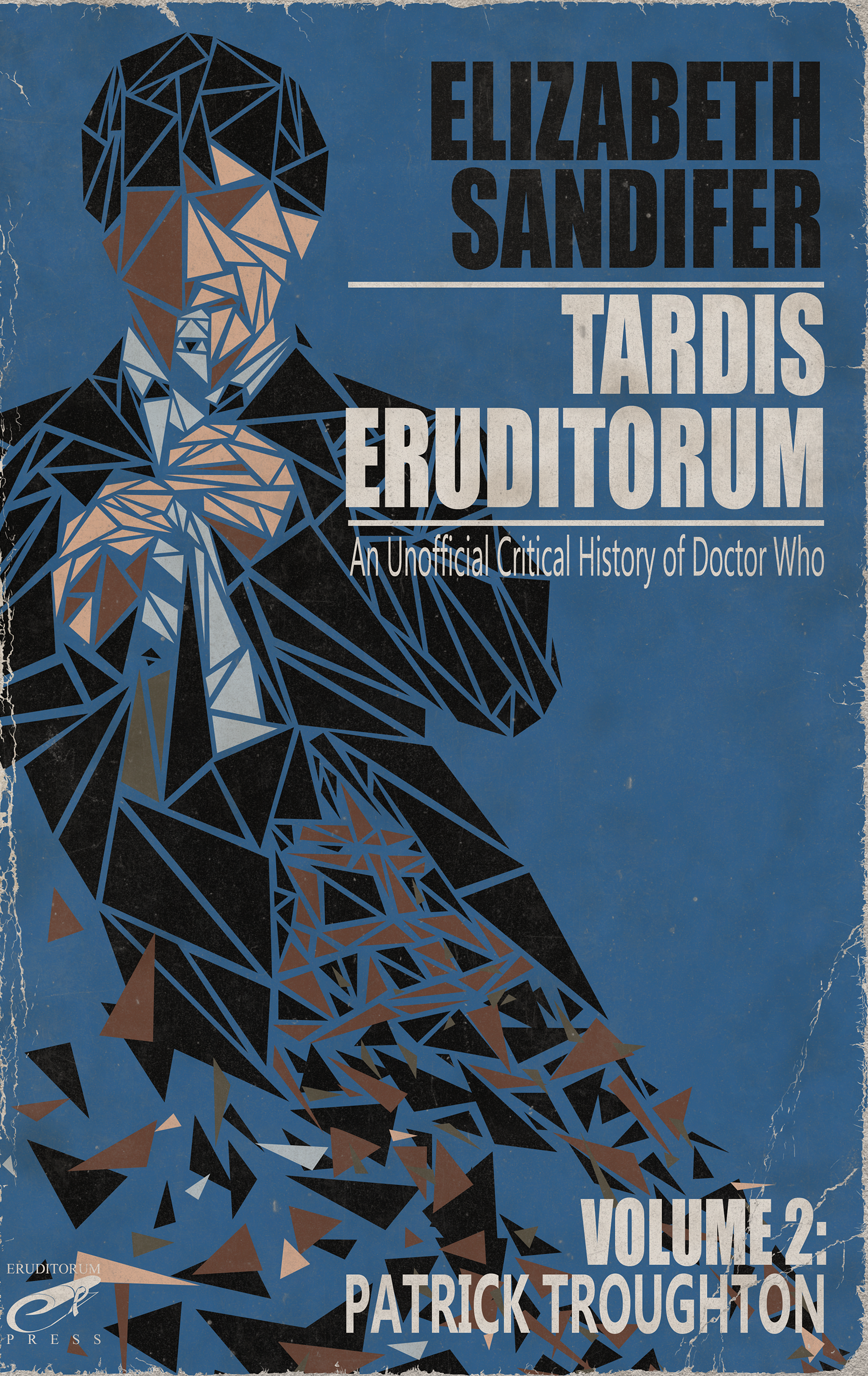 Eruditorum Press is pleased to announce the reissuing of TARDIS Eruditorum Volume 2: Patrick Troughton, the second book in the TARDIS Eruditorum series, a sprawling history of modern Britain through the idiosyncratic yet productive lens of Doctor Who. As the name suggests, this volume covers the Patrick Troughton era, with essays on every televised story from The Power of the Daleks through The War Games, along with side jaunts into a myriad of spinoff media both contemporary and anachronistic, as well as essays on other cultural events such as You Only Live Twice, The Prisoner, Batman, and the Summer of Love.
Eruditorum Press is pleased to announce the reissuing of TARDIS Eruditorum Volume 2: Patrick Troughton, the second book in the TARDIS Eruditorum series, a sprawling history of modern Britain through the idiosyncratic yet productive lens of Doctor Who. As the name suggests, this volume covers the Patrick Troughton era, with essays on every televised story from The Power of the Daleks through The War Games, along with side jaunts into a myriad of spinoff media both contemporary and anachronistic, as well as essays on other cultural events such as You Only Live Twice, The Prisoner, Batman, and the Summer of Love.
This newly released edition features rewritten essays on The Underwater Menace, The Enemy of the World, and The Web of Fear to reflect the ten previously missing episodes that have been recovered since the book’s initial publication in 2012, as well as an essay on the Telos novella Wonderland. There are also, in the paperback edition, various typesetting adjustments to bring its design up to the quality standards set by other Eruditorum Press books.
The book is available at the following links in both paperback and DRM-free ebook editions.
Smashwords (for non-Kindle e-readers)
If you’ve previously purchased the ebook through either Smashwords or Amazon you can upgrade to the new edition for free through the appropriate site. …
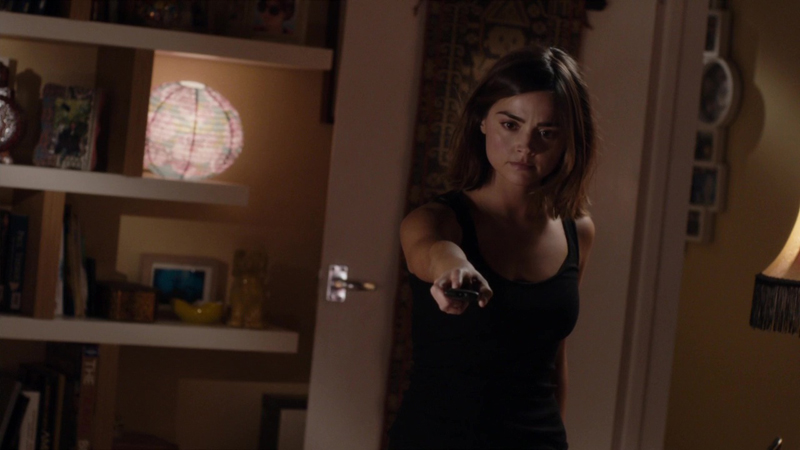 |
| One of the things you notice a lot more when watching television as a girl is how fundamentally ludicrous a lot of characters’ “no makeup and looking slightly ratty” looks are. |
It’s October 31st, 2015. Adele has debuted at number one with “Hello,” just ahead of Justin Bieber’s also new to the charts “Sorry,” a situation that persists through both episodes of this story. Sam Smith, Ariana Grande, Mnek & Zara Larson, The Weeknd, and Drake also chart. In news, hundreds die in Pakistan and Afghanistan after a magnitude 7.5 earthquake, Paul Ryan becomes Speaker of the House of Representatives, and a Russian plane flying from Egypt to Saint Petersburg is blown up shortly after takeoff, killing 224.
One ought never look a gift coincidence in the mouth when doing psychochronography, so let’s start with the cliffhanger, in which the Doctor’s plane is shot down by a group consciously made to parallel ISIS. On the one hand this is an eerie coincidence, but it’s also the sort of thing that happens when you ostentatiously position your story to be rooted in current events. Comment not on the abyss, as I’m sure someone or other said once.
But we’ll circle around to the politics of this story in good time. Let’s start, in the spirit of cracked mirrors, with the actual split between the two halves. The Moffat-era two-parter structure, after all, is rooted in the idea that the second part should always begin somewhere different than where the first part left off, a rule fashioned after his experience with The Empty Child/The Doctor Dances and his dissatisfaction with the feeling that the Doctor and company had just been in that basement for a really long time by the time the latter episode rolled around. And so now part twos begin by ostentatiously altering the premise of the story: UNIT shows up, we cut to Missy and Clara, the Doctor is a ghost now, or it’s just an entirely new story that shares a character with the previous one. So what’s the change that breaks the symmetry between part one and part two of this story? Clara obvs.
After all, you can’t do a Zygon story without someone important being a duplicate. The Doctor is the boring answer, the UNIT cast is all even duller, and so it has to be Clara, not least because Jenna Coleman has not to date gotten to do her obligatory villain turn. (Not every companion gets one, but they’re always a bit conspicuous by their absence.) So the big end-of-episode reveal for The Zygon Invasion (as distinct from the cliffhanger itself) is that Clara has been a Zygon all episode. Correspondingly, the big opening shift for The Zygon Inversion is her reinsertion into the narrative as the airplane shooting cliffhanger replays from her perspective. The ensuing showdown between Clara and her duplicate, Bonnie, is scintillating, not just because it’s Clara’s most extended hero moment all season, but because the underlying dynamic is so carefully worked out.…